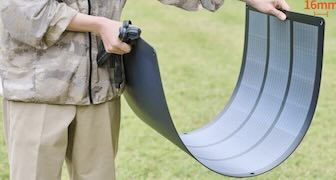Tateyama, Oct 26 (mongabay.com) - The late summer heat was no concern for University of Tokyo professor Nina Yasuda and her student research team, who descended on Tateyama, an aging resort town on the southeastern tip of Tokyo Bay, armed with snorkels, flippers, GPS devices and tools for DNA analysis one early September day.
Across Japan, from Tateyama in the east to the Ryukyu Archipelago in the south, coral researchers like Yasuda are watching with fascination as the country’s coastal seas transform due to climate change.
The threat climate change poses to tropical and subtropical coral reefs — those located within 30° of the equator, which are estimated to support one-quarter of all marine life — is well documented and widely understood. Approximately 14% of the world’s reefs have been lost since 2009, largely due to rising sea temperatures that cause corals to expel the symbiotic algae living in their tissue, a phenomenon known as bleaching.
As this biodiversity crisis unfolds, the idea that tropical and subtropical corals could take refuge in cooler, temperate seas has offered cause for hope. That idea seemed to fit into a larger, global phenomenon of “tropicalization,” in which species associated with the tropics are becoming more abundant poleward as temperatures rise, often leading to drastic ecosystem changes. A 2011 study, for example, claimed to show the first large-scale evidence of “the expansion of tropical [coral] species ranges to temperate areas.” In other parts of the world, such as Australia, researchers at the time believed they were seeing a similar phenomenon.
But the latest research from Japan’s coral experts, based on surveys and DNA analysis like Yasuda’s work, has tempered those hopes: Although the country’s coral communities are changing dramatically, poleward “range expansion” of its subtropical corals is occurring only in a small minority of cases. ...continue reading















